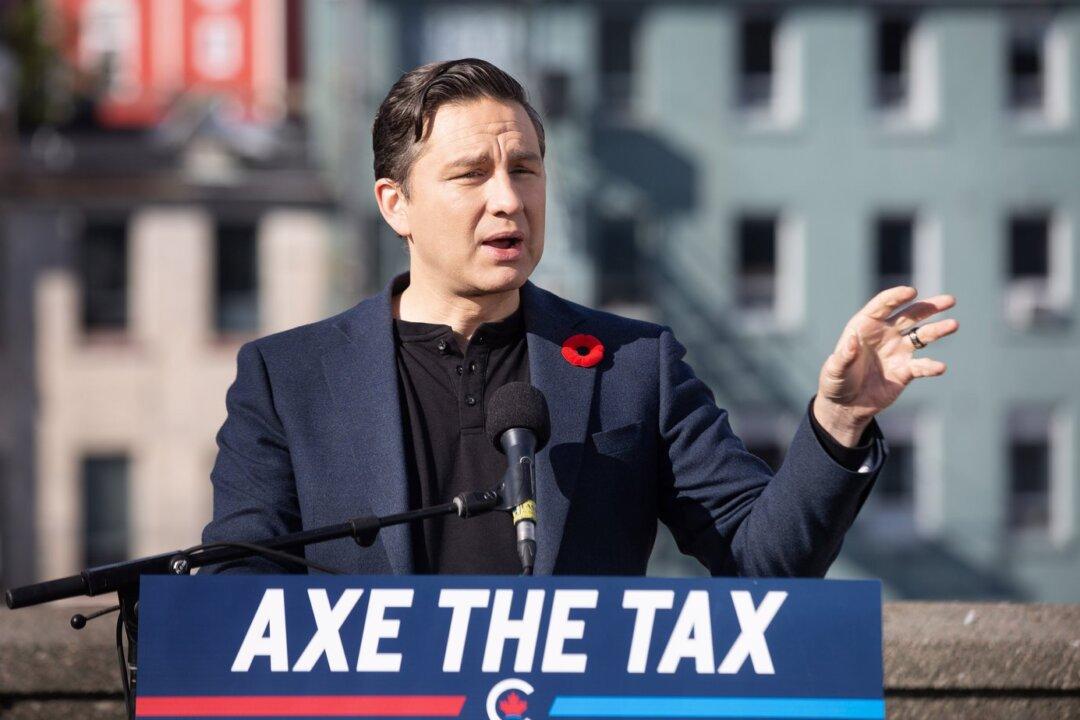The Conservatives moved on Nov. 1 to make carbon pricing the ballot box question in the next election, seizing on the public’s anxiety about affordability, and seeing a crack in the Liberals’ carbon-price armour.
“A carbon tax election,” Leader Pierre Poilievre proposed in a speech to his caucus in Ottawa.





